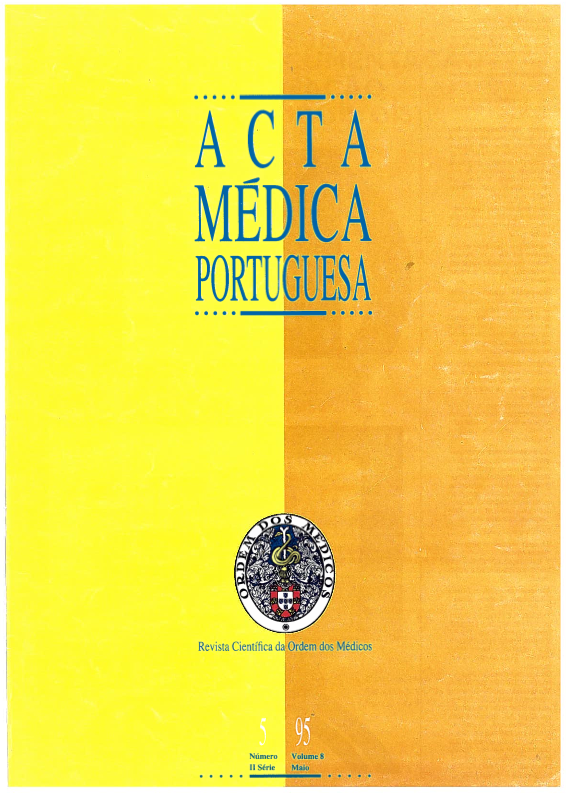Pancreatite aguda. Análise de 91 casos consecutivos (1988-1991) com breve revisão da literatura.
DOI:
https://doi.org/10.20344/amp.2704Resumo
Acute pancreatitis (AP) remains a subject of great controversy from the standpoint of its aetiology, pathogeny and treatment. We present a study of 91 patients with AP consecutively admitted to a surgical ward. 50 Women and 41 men with a mean age of 59 +/- 19 years were treated. The aetiology of AP was attributed to gallstones in 54 patients, alcohol in 22, ERPC and trauma; in 14 patients the aetiology was considered idiopathic. The most frequent signs and symptoms were pain, vomiting, abdominal tenderness, jaundice and fever. The mean number of Ranson's prognostic criteria was 3 +/- 1.5 and 29 patients (31%) had more than three. Initial management was conservative in 84 patients (92.3%) and seven were operated on admission (acute abdomen in four, septic shock in two and common duct obstruction in another). Mortality rate was 11% (n = 10) and in 24 patients (26.3%) there were complications of AP. Most of the patients (80%) began oral feeding a week after admission. The mean number of Ranson's criteria of patients deceased was 5.4 +/- 1.6 and of those who survived was 2.8 +/- 1.3 (p < 0.001). Follow-up of patients allowed us to see that in five (5.5%) there was a relapse of AP.Downloads
Downloads
Como Citar
Edição
Secção
Licença
Todos os artigos publicados na AMP são de acesso aberto e cumprem os requisitos das agências de financiamento ou instituições académicas. Relativamente à utilização por terceiros a AMP rege-se pelos termos da licença Creative Commons ‘Atribuição – Uso Não-Comercial – (CC-BY-NC)’.
É da responsabilidade do autor obter permissão para reproduzir figuras, tabelas, etc., de outras publicações. Após a aceitação de um artigo, os autores serão convidados a preencher uma “Declaração de Responsabilidade Autoral e Partilha de Direitos de Autor “(http://www.actamedicaportuguesa.com/info/AMP-NormasPublicacao.pdf) e a “Declaração de Potenciais Conflitos de Interesse” (http://www.icmje.org/conflicts-of-interest) do ICMJE. Será enviado um e-mail ao autor correspondente, confirmando a receção do manuscrito.
Após a publicação, os autores ficam autorizados a disponibilizar os seus artigos em repositórios das suas instituições de origem, desde que mencionem sempre onde foram publicados e de acordo com a licença Creative Commons









